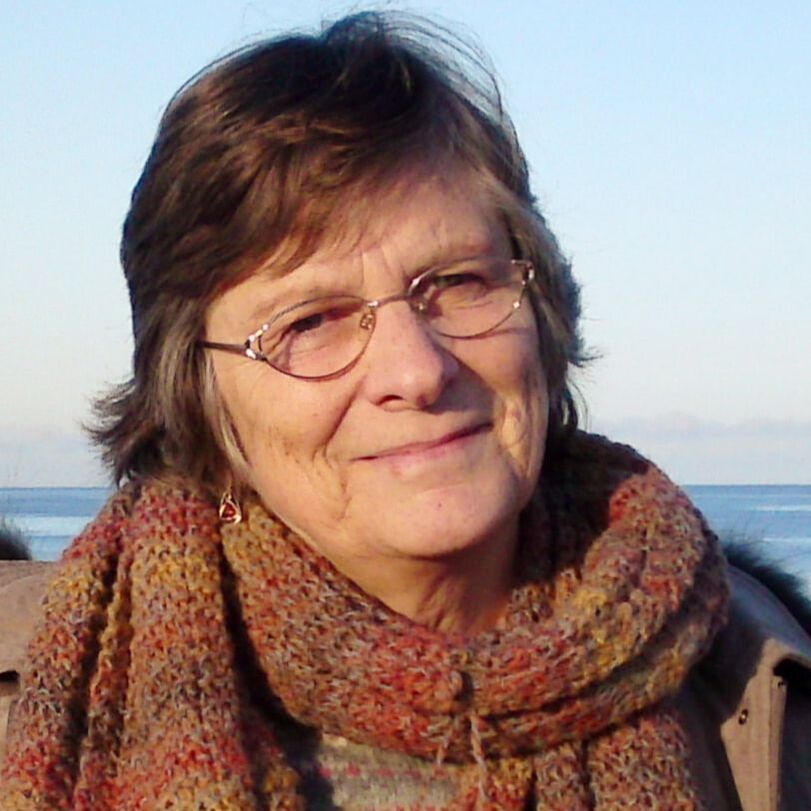Authors
Joy Hendry
Joy Hendry was born in Birmingham, brought up within a Scottish community in Warwickshire, travelling back to the home country every summer to visit relatives and enjoy the wonderful opportunities for hiking and camping. She was also sometimes sent, alone from quite an early age, to visit her mother’s relatives in Yorkshire, where her aunt introduced her to beachcombing and coastal walks and encouraged her ambition to become a writer. From the age of nine, Joy attended Penrhos College, a girls’ boarding school by the sea in North Wales, advised (correctly) by the family doctor to help her recover from a long and quite debilitating attack of sinusitis. Travel, adventure and new experiences were thus woven into her upbringing, and possibly underpinned her eventual choice of social anthropology as a career.
Before she discovered that path, she took a first degree in General Science at Kings College, London, in the heart of the swinging sixties, then travelled and worked as a teacher and a journalist in Canada and Mexico. She first sailed into Japan on a cruise ship making its way from Brazil to Yokohama Bay in the spring of 1971 to fulfil an ambition sparked by a visit to the Japanese pavilion at the 1967 EXPO in Montreal to learn the Japanese language. Boarding this liner in Los Angeles she had nearly three weeks to meet people and stumble through early linguistic infelicities before she disembarked, useful in a country still quite sparse in foreign visitors. The next six months were spent attending language school, living with a group of young Japanese who became lifelong friends, and travelling from the northernmost tip to the south of the four main islands with one Yasuro-san. Joy went back to university to study social anthropology at Lady Margaret Hall, Oxford, in the autumn of that same year. She met her husband Dennis in Oxford, and he and their two sons, James and William, joined her in Japan for some of her fieldwork; otherwise they made their home in the city of Morse and the Dreaming Spires. She went on to teach for many years at Oxford Brookes University and after retirement was made an emeritus professor. She also held a readership in the Scottish Centre for Japanese Studies at the University of Stirling from 1989-92, when she established a home in Tillicoultry, Clackmannanshire, where she would return most summers to write. Now released from teaching, this same activity enabled her to spend the 2020 lockdown period in relative peace and comfort. Joy also founded a global professional organisation called the Japan Anthropology Workshop and another, the Europe Japan Research Centre, largely based at Oxford Brookes, where she helped to found one of the most successful departments of Japanese in the UK. She has been president of the British Association for Japanese Studies, vice president of the European Association for Japanese Studies, and in 2017, the Government of Japan bestowed on her the Order of the Rising Sun, Gold Rays with Rosette, “in recognition of her outstanding contribution to the promotion of Japanese Studies in the UK and thus to deeper mutual understanding between Japan and the United Kingdom”. Not all Joy’s research has been in Japan, however, and her initial interest in World Fairs, also sparked by the EXPO in Montreal in 1967, led much later to projects on cultural display which started in Japanese gardens and theme parks, but eventually led to eight months among First Nations in Canada and three and four months respectively with Aboriginal scholars in Australia and Maori in New Zealand. The Canadian research was about cultural education centres set up by members of Canada’s First Peoples to represent themselves rather than be displayed in European-style museums, and she lived on a Reserve with a Mohawk/Seneca family whose son-in-law had (by serendipitous chance) set up the Native Pavilion in Montreal that had not only inspired Joy, but also convinced the Canadian government to fund many ensuing projects. Her Indigenous friends often claim Scottish ancestry, but the second study, supported by the University of Melbourne in Australia and the University of Otago, Dunedin, New Zealand, was about people seeking recognition for an indigenous science that pre-dates the findings of the Scottish Enlightenment that were carried to their lands by those antecedents. Already author of two textbooks on the subject of social anthropology, Joy is now working to broaden public interest in the discipline, and she devised the four units offered by the Scottish Qualifications Authority to schools and colleges in Scotland, and when invited, gives talks and lectures on the subject, as well as on Japan. Since the extended lockdown of 2020 she has been working on a first novel set in Mexico, the place where she herself first discovered the subject. Select Bibliography:
|



